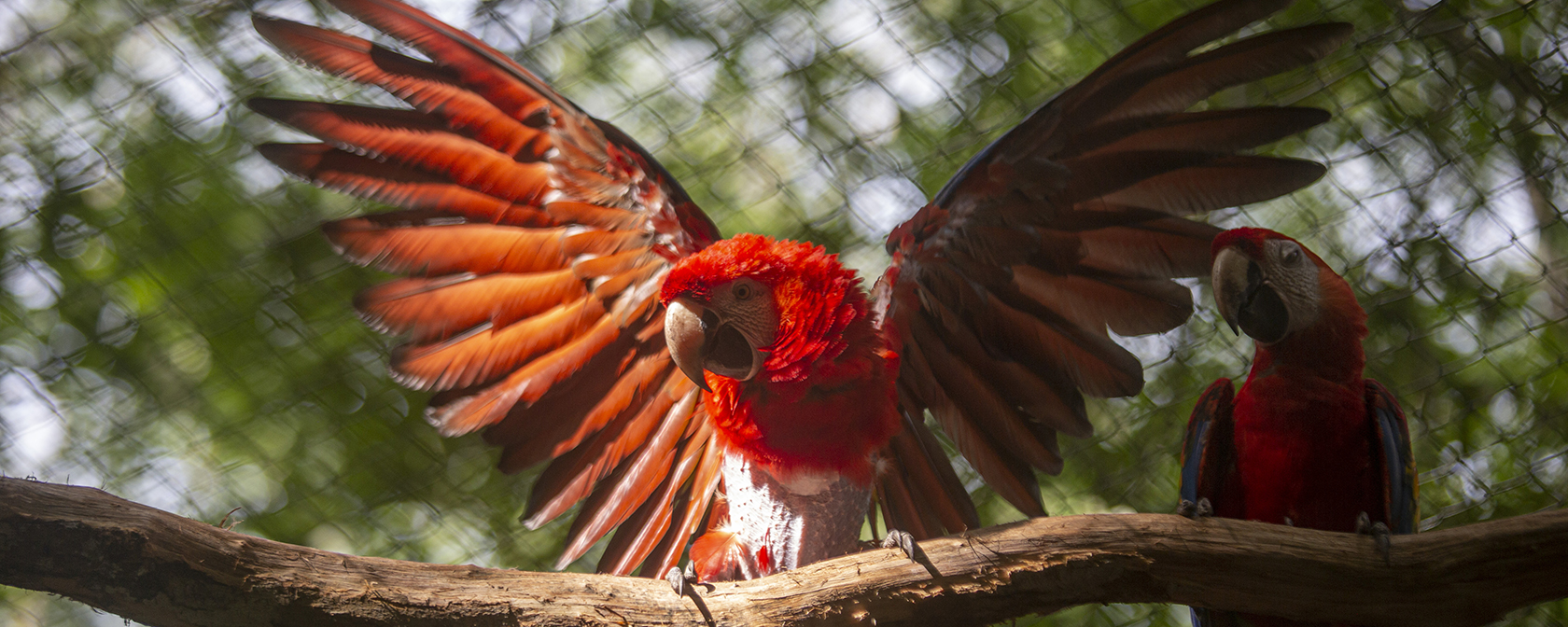By Sara Amundson and Kitty Block
When Humane Society of the United States investigators go out to take a close look at facilities that keep captive birds—roadside zoos, animal markets and others—they almost always return with the same dispiriting reports of dismal treatment and living conditions.
Owls and hawks tightly chained to perches for display in a hunting show booth. Parrots and other birds in barren cages—thick with waste, old seed and no clean water in sight—missing feathers and picking away at themselves. A caged grey parrot alone in a dark room at a roadside zoo, calling out, “hello, hello,” when an investigator entered.
The terrible details may differ, but the story is always the same. Birds in all these situations are bereft of legal protection and invariably denied proper care. Every one of them, in a legal sense, has been falling through the cracks for years.
The good news is that the long wait for a promised measure of basic protection is almost over, as the U.S. Department of Agriculture has just released a proposed rule outlining the handling, care and treatment of birds held in captivity. The rule, which is expected to go into effect in 2023, will apply to breeders, distributors and exhibitors of birds, as well as to carriers and intermediate handlers of birds. It will also regulate the treatment of wild-caught birds at research facilities.
Such regulation is not merely overdue. It is warranted on moral and animal welfare grounds.
The exemption of certain animal species from legal protection, usually done under pressure from one special interest or another, is a persistent obstacle in our work, with no shortage of examples in local, state or federal law. One of the most conspicuous examples is the exclusion of most captive birds—from birds bred for use in research to pet canaries—from protection under federal Animal Welfare Act regulations. The AWA does require protections for certain birds, such as wild-caught birds used for research, but for decades, the USDA declined to establish specific regulatory protections for them. Thankfully, a couple of years ago, after a round of litigation, a U.S. Court of Appeals agreed with animal advocates that the USDA must regulate bird welfare.
It was encouraging to see the recently proposed USDA rule includes the specific recommendations we advanced with our key partners the American Anti-Vivisection Society, the Avian Welfare Coalition and the Alternatives Research & Development Foundation in 2020. These first-ever standards would mandate enrichment to meet the psychological needs of birds, prohibit the transport of unweaned birds, require licensure of any facilities with four or more breeding pairs, require access to water for immersion and swimming in the case of wading and aquatic birds, and include coverage of birds used in falconry.
This is a good proposal, but we feel strongly that the USDA should include additional protections in the final rule. It is critical that captive birds be able to express natural behaviors such as flying, so there ought to be a limit on the number of hours they can be tethered, along with a basic requirement for flight space in facilities. Moreover, just as the USDA has prohibited declawing and defanging of certain species, we hold the view that the agency should prohibit painful mutilations such as pinioning (wing clipping), toe clipping, surgical devoicing and beak alterations. Physical alterations for cosmetic or behavioral reasons, not focused on the improvement of animal well-being, should be illegal.
We also believe the agency should develop specific regulations to restrict public contact with birds to help prevent injury to a person or animal, and since birds in the pet trade are wild animals, pet shops selling them should be licensed.
Please take the time to weigh in with the USDA, acknowledging your appreciation for the proposal and sharing your view that it is reasonable to set standards under the AWA for the care and treatment of birds used by commercial industries, such as breeding, exhibition and the pet trade, and for some types of research.
Not surprisingly, the rule is already under attack by interest groups that want to maintain the status quo—no protection at all for birds. We can’t have that, not this time. We’ve waited too long to cede any ground to special interests, and more importantly, birds have waited too long for protections they so deserve.
Kitty Block is President and CEO of the Humane Society of the United States.




